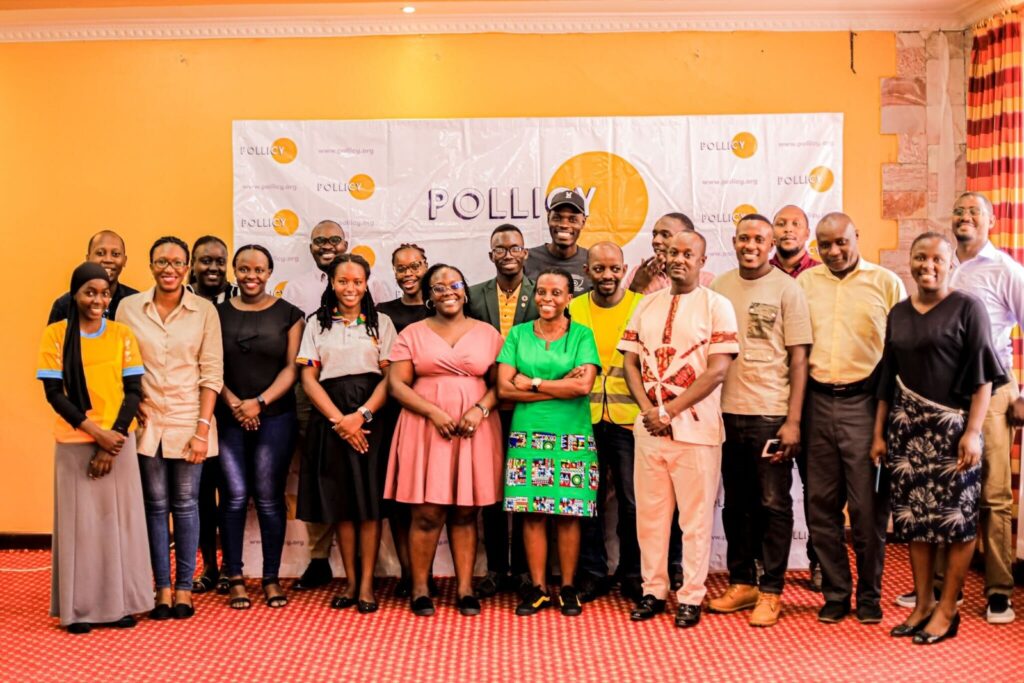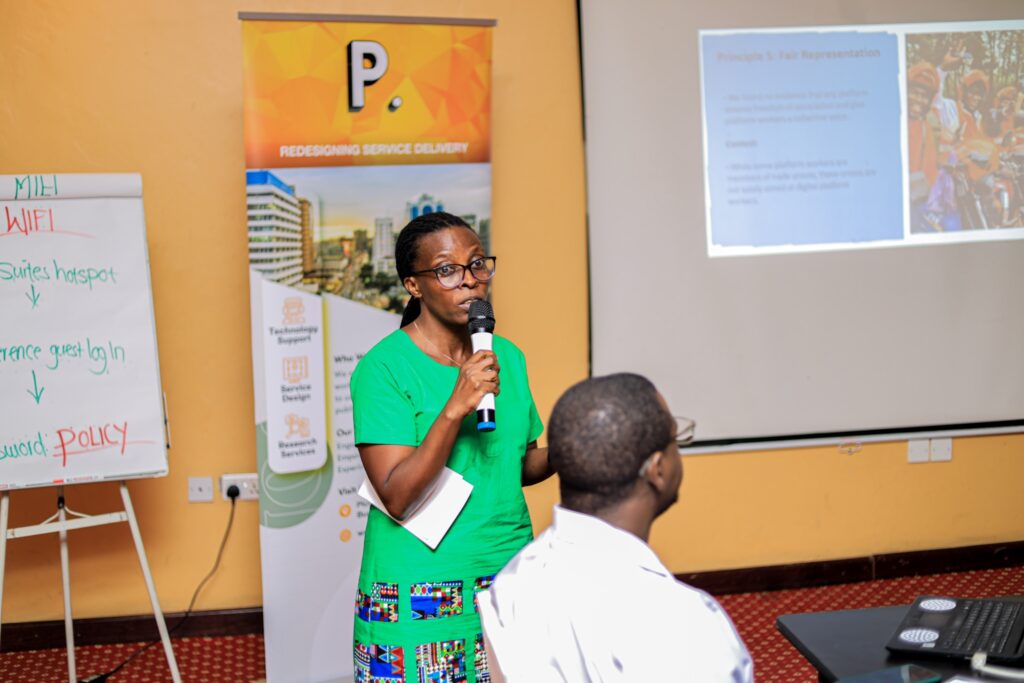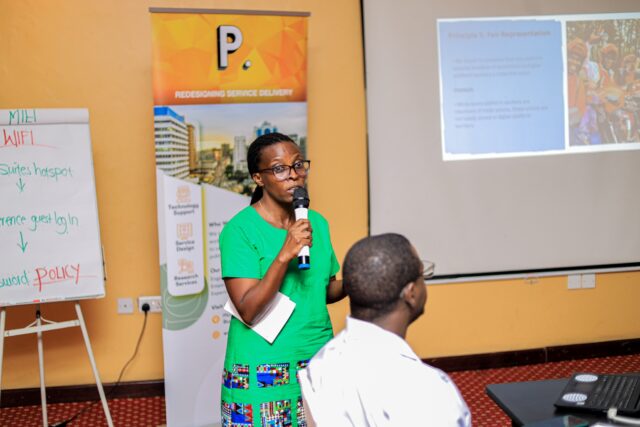
Joyce Namugambe
Pollicy, a feminist tech collective based in Uganda, in partnership with the Oxford Internet Institute and the WZB Berlin Social Science Centre, with support from the Germany Agency for International Cooperation (GIZ), have launched a new report on advocating for essential pro-worker initiatives and equitable working conditions within Uganda’s digital labor platforms.
The research which was done under the Fairwork project, was to subject these platforms to meticulous scrutiny against five principles of fair work being fair pay, fair conditions, fair contracts, fair management, and fair representation.
These guiding principles were meticulously forged through extensive dialogues at the International Labour Organization (ILO) with platform workers, platform managers, trade unions, regulatory authorities, academics, and legal experts specialising in labor law.
The project aim is to reveal the current state of labor conditions within the platform economy and to envision what they could become. The Fairwork ratings emerged as a beacon of independent insight into the labor conditions of platform work, which ratings offer invaluable perspectives for policymakers, platform companies, workers, and consumers.
The Co Director of Research at Policy Bonnita Nyamwire revealed that this report underscores the pressing need for equitable conditions in Uganda’s digital labor landscape. She adds that the research highlights the challenges faced by platform workers, particularly women, and emphasizes the importance of adopting comprehensive safety measures and proactive strategies against harassment.”

Bonnita noted that by 2021, workers especially the youths’ jobs were affected by the Covid 19 pandemic and many of them resorted to platform work under the promises of better working conditions and descent work, making more people flock the digital platform jobs.
She sited the companies which highly utilized the online platform jobs being Glovo, Quicksand, and Delivery Yo, as well as transportation firms like Safe Boda, Uber, Bolt, and Little Ride into the limelight. However, this research found no evidence to suggest that workers across platforms were guaranteed even a minimum wage after costs.
“To address these critical issues, it is imperative that platforms adopt policies that prioritize the safety and well-being of women workers. This includes comprehensive safety measures, specialized training, the implementation of modern technology, and proactive
“To address these critical issues, it is imperative that platforms adopt policies that prioritize the safety and well-being of women workers. This includes comprehensive safety measures, specialized training, the implementation of modern technology, and proactive strategies to combat harassment. By doing so, we can empower women to participate fully and safely in digital labour platforms.” Bonnita noted.






